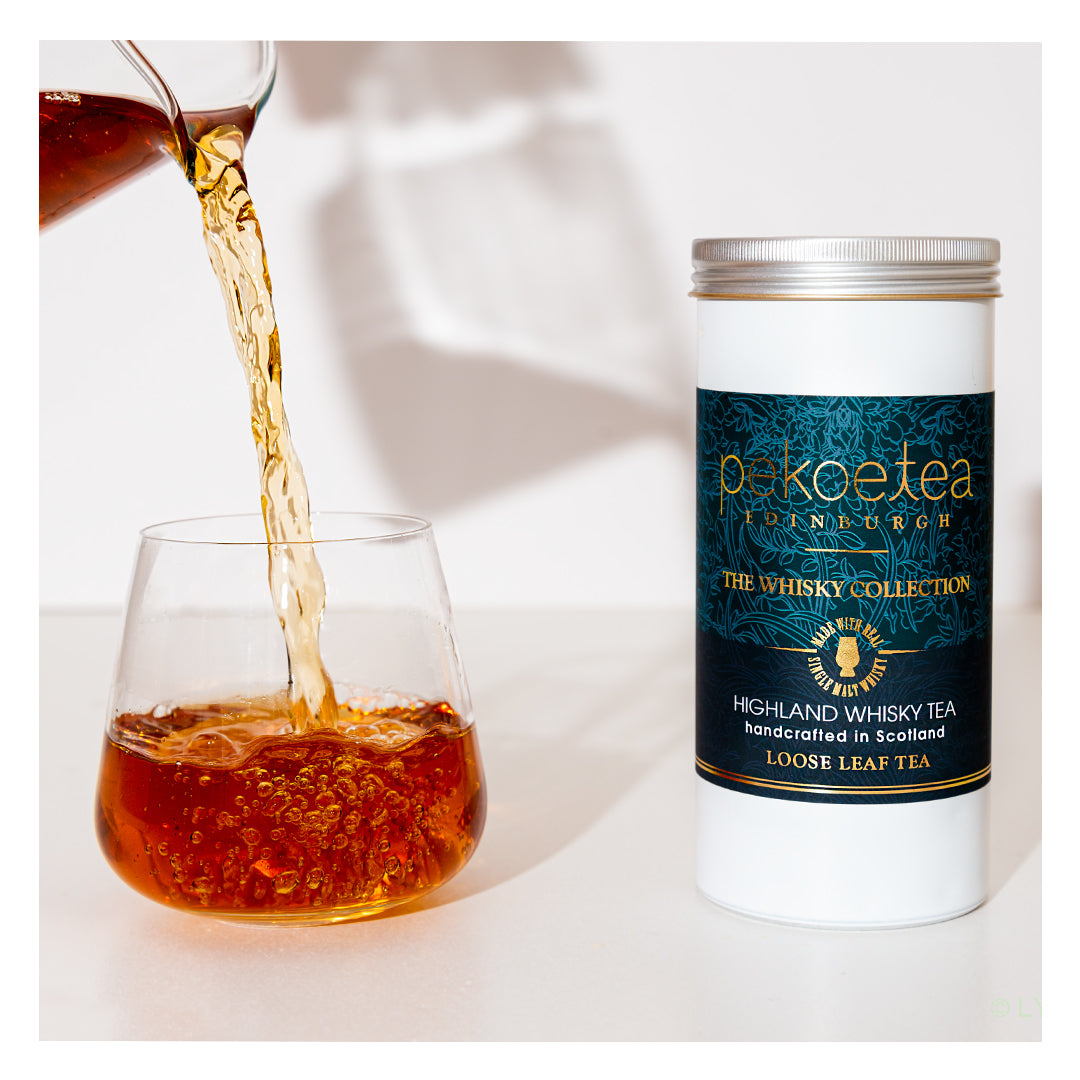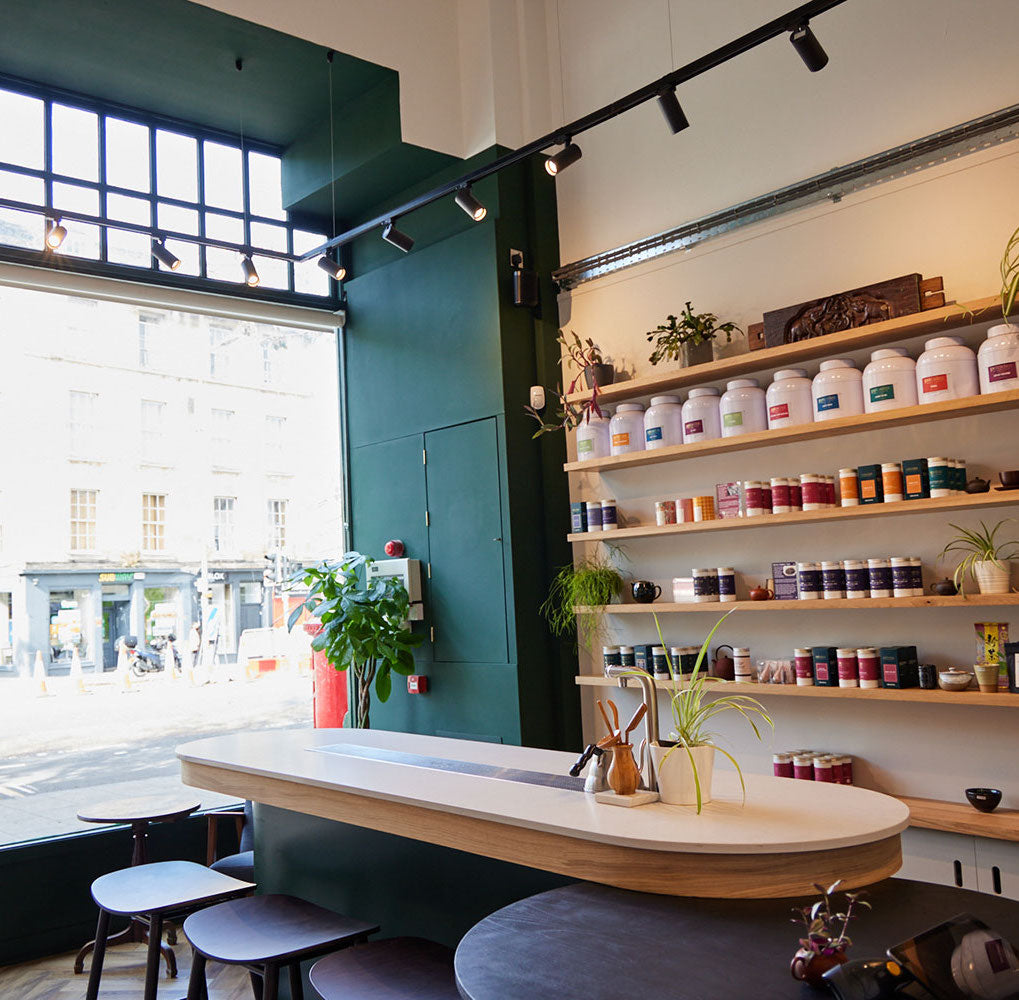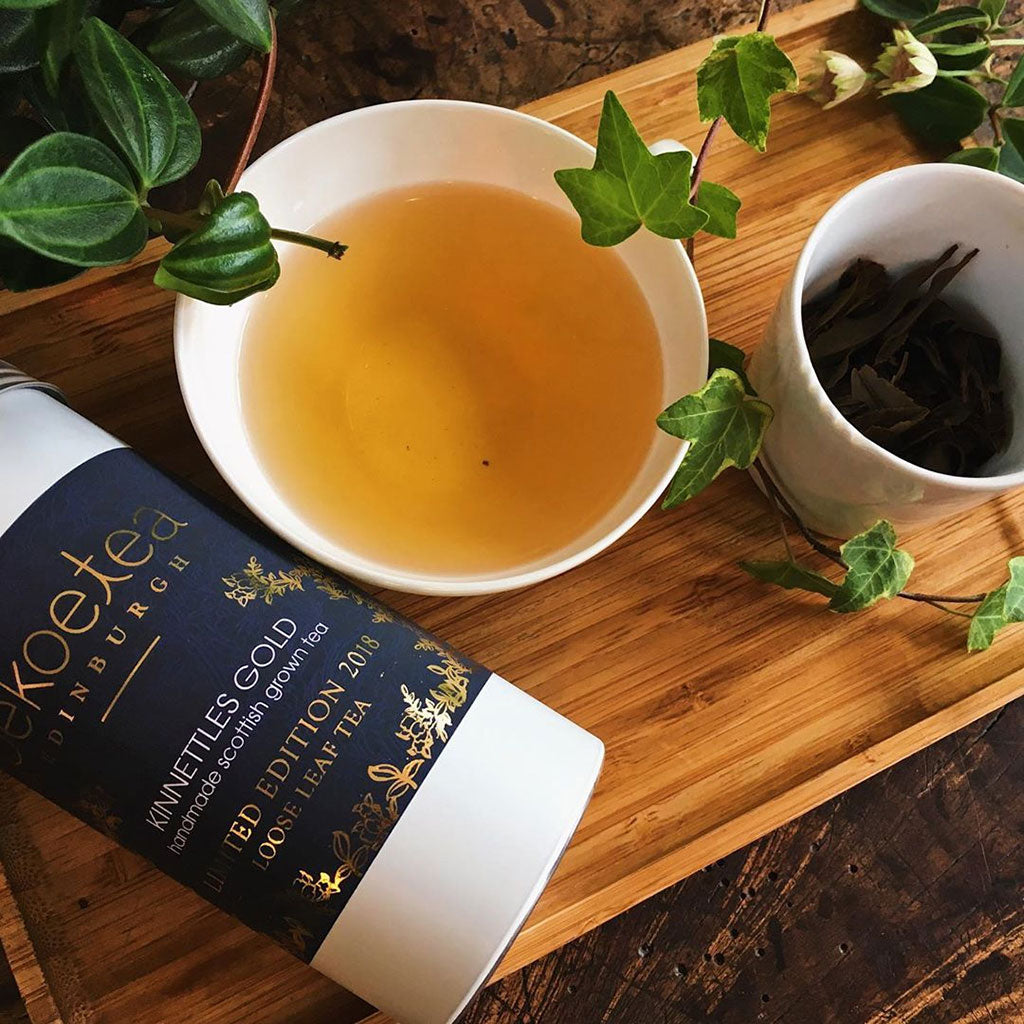In March this year I was fortunate enough to visit our Indian tea suppliers in Kolkata and Darjeeling. Currently we buy our most of Darjeeling directly from Rohini and Gopaldhara estates, owned by Rishi Saria and his family. It was a pleasure to meet with him to taste and discuss his teas.
Rohini Tea Estate
Rohini Tea Estate is located around 1000-3000ft above sea level in the Kurseong Valley. It is one of the oldest tea estates in Darjeeling with the oldest bushes being planted by the British in the 1850s. After independence the estate was abandoned by the British who were uncertain about the future and most of the land was taken over by the Indian military during the Sino-Indian war in the 1960s. Rishi's family bought the estate in 1995 and they started production again with a major amount of replanting. The estate itself is managed by Mr Singh, who lives in the original estate manager's house next to the estate and the factory is relatively small producing tea in a relatively artisan way. The estate grows around 7 different clone varieties of tea plant at various different altitudes in addition to the original China seed bushes planted when the estate was opened. By selecting the different clones and processing them in various different ways, Rohini can be a versatile estate with the different products in produces. One of the teas that Rohini is currently producing is Jethi Kupi from B157 clones. Jethi Kupi is starting to become well known in tea aficionado circles and is one of the earliest Darjeeling First Flushes to be produced each year. We are lucky enough to have bought a small amount of invoice EX1 - the first batch produced in 2016. [caption id="attachment_2230" align="alignleft" width="150"]
taken over by the Indian military during the Sino-Indian war in the 1960s. Rishi's family bought the estate in 1995 and they started production again with a major amount of replanting. The estate itself is managed by Mr Singh, who lives in the original estate manager's house next to the estate and the factory is relatively small producing tea in a relatively artisan way. The estate grows around 7 different clone varieties of tea plant at various different altitudes in addition to the original China seed bushes planted when the estate was opened. By selecting the different clones and processing them in various different ways, Rohini can be a versatile estate with the different products in produces. One of the teas that Rohini is currently producing is Jethi Kupi from B157 clones. Jethi Kupi is starting to become well known in tea aficionado circles and is one of the earliest Darjeeling First Flushes to be produced each year. We are lucky enough to have bought a small amount of invoice EX1 - the first batch produced in 2016. [caption id="attachment_2230" align="alignleft" width="150"] Drying Teas using Chinese Dryer[/caption] First Flush production starts in February at Rohini, which is very early for Darjeeling. The temperature at Rohini is high so withering time is shorter than at higher altitudes and the batches are small. Because of the low yields, some of the tea is rolled and dried in Chinese style rollers and driers rather than the large machines. The small batches that produce less than 5 sacks of finished tea are numbered with EX instead of DJ invoice numbers. Most of the teas we buy are from the EX invoice numbers. First Flush harvesting happens over a period of weeks and each tea plant is rested for 4-5 days inbetween each plucking to let the new buds grow. After a cycle of 4-5 pickings, the plants are then rested for 20-25 days before the next harvest season starts. When the plant stops producing the bud (known locally as Banji), this is when the longer resting time starts. [caption id="attachment_2241" align="alignright" width="300"]
Drying Teas using Chinese Dryer[/caption] First Flush production starts in February at Rohini, which is very early for Darjeeling. The temperature at Rohini is high so withering time is shorter than at higher altitudes and the batches are small. Because of the low yields, some of the tea is rolled and dried in Chinese style rollers and driers rather than the large machines. The small batches that produce less than 5 sacks of finished tea are numbered with EX instead of DJ invoice numbers. Most of the teas we buy are from the EX invoice numbers. First Flush harvesting happens over a period of weeks and each tea plant is rested for 4-5 days inbetween each plucking to let the new buds grow. After a cycle of 4-5 pickings, the plants are then rested for 20-25 days before the next harvest season starts. When the plant stops producing the bud (known locally as Banji), this is when the longer resting time starts. [caption id="attachment_2241" align="alignright" width="300"] Tasting Rohini Tea Invoices[/caption] The economics of growing and selling Darjeeling teas are not easy. Currently most Darjeeling tea estates are either struggling or are actively making a loss. One of the reasons for this is climate change. When I visited in March, there hadn't been any real rain for months and the bushes were not producing as much as they could. It certain parts it was so dry that some of the tea plant had caught fire on the hill sides. Another reason is a labour shortage: the younger generation don't want to work on the tea estates and would rather travel to the cities. One of the ways the estate owners are looking to make their estates viable is to sell small batch artisan teas at a higher price. At Rohini, they are experimeting with different clones to prouce different teas including some Japanese clones which are making some unsual and exquisite products, which we were able to sample. Rohini sells 10% of their teas at a high margin - these teas include Jethi Kupi and Exotic. 90% of what is produced here is sold at standard prices, with much of it sent to auction.
Tasting Rohini Tea Invoices[/caption] The economics of growing and selling Darjeeling teas are not easy. Currently most Darjeeling tea estates are either struggling or are actively making a loss. One of the reasons for this is climate change. When I visited in March, there hadn't been any real rain for months and the bushes were not producing as much as they could. It certain parts it was so dry that some of the tea plant had caught fire on the hill sides. Another reason is a labour shortage: the younger generation don't want to work on the tea estates and would rather travel to the cities. One of the ways the estate owners are looking to make their estates viable is to sell small batch artisan teas at a higher price. At Rohini, they are experimeting with different clones to prouce different teas including some Japanese clones which are making some unsual and exquisite products, which we were able to sample. Rohini sells 10% of their teas at a high margin - these teas include Jethi Kupi and Exotic. 90% of what is produced here is sold at standard prices, with much of it sent to auction.








